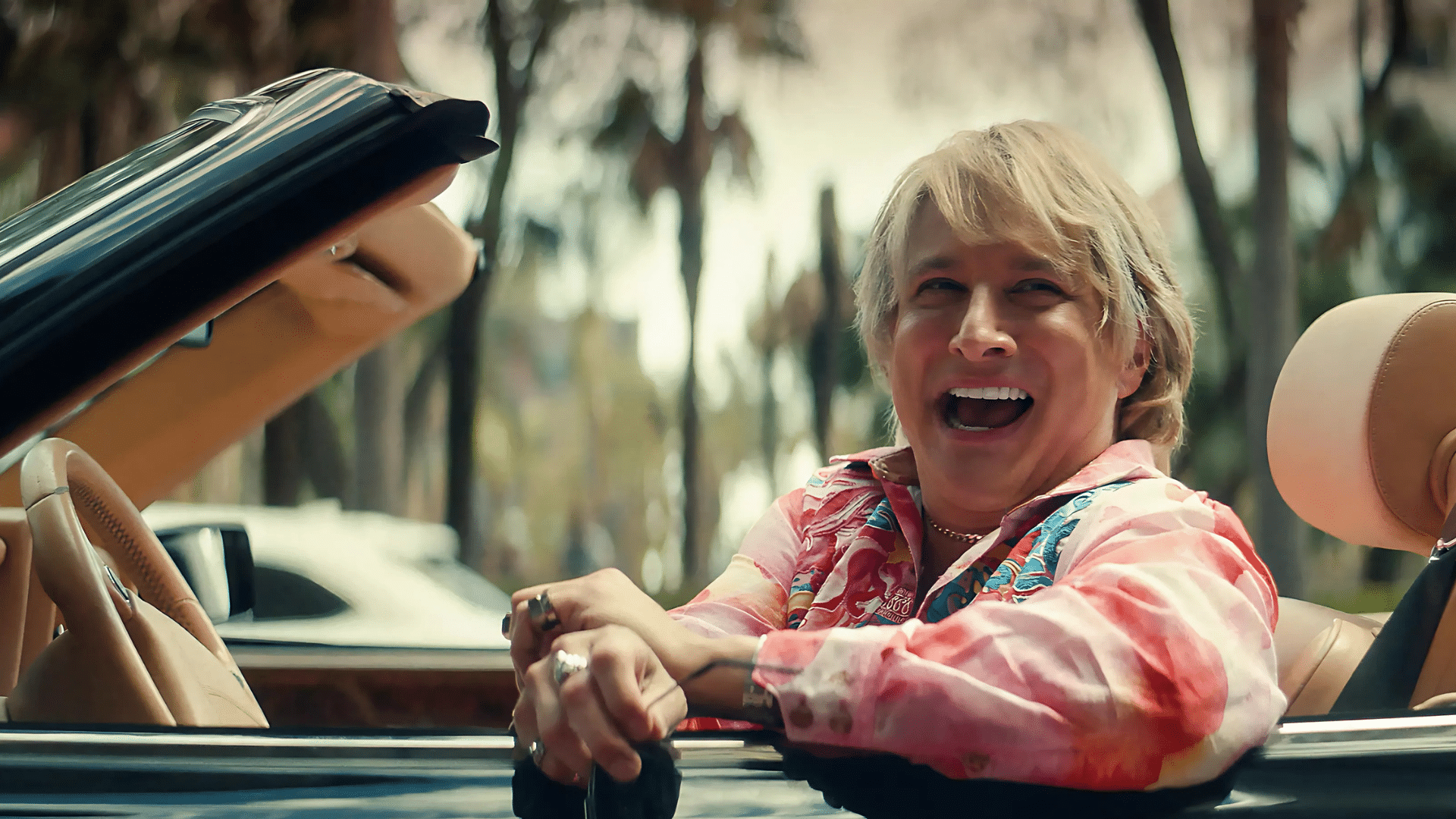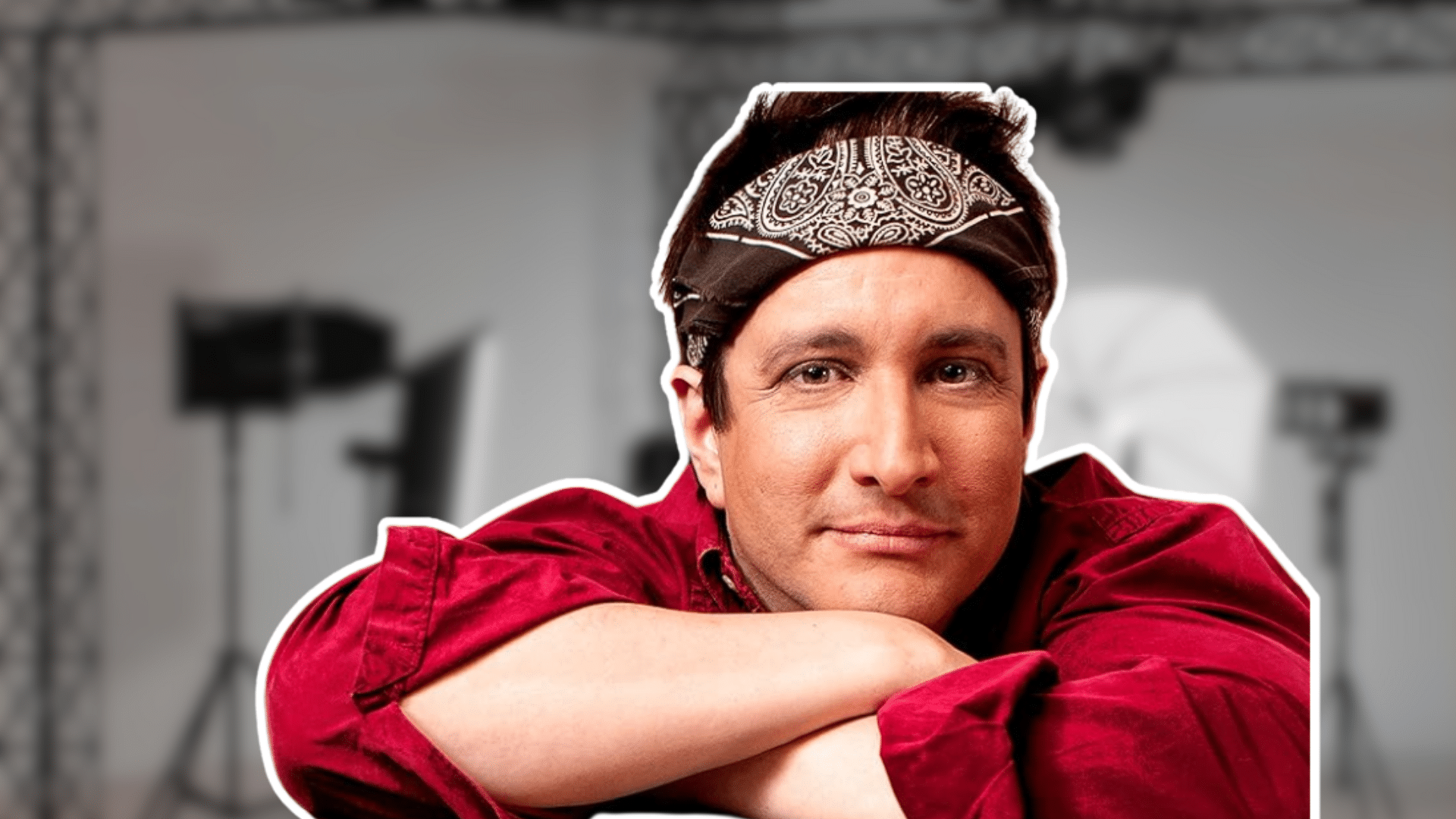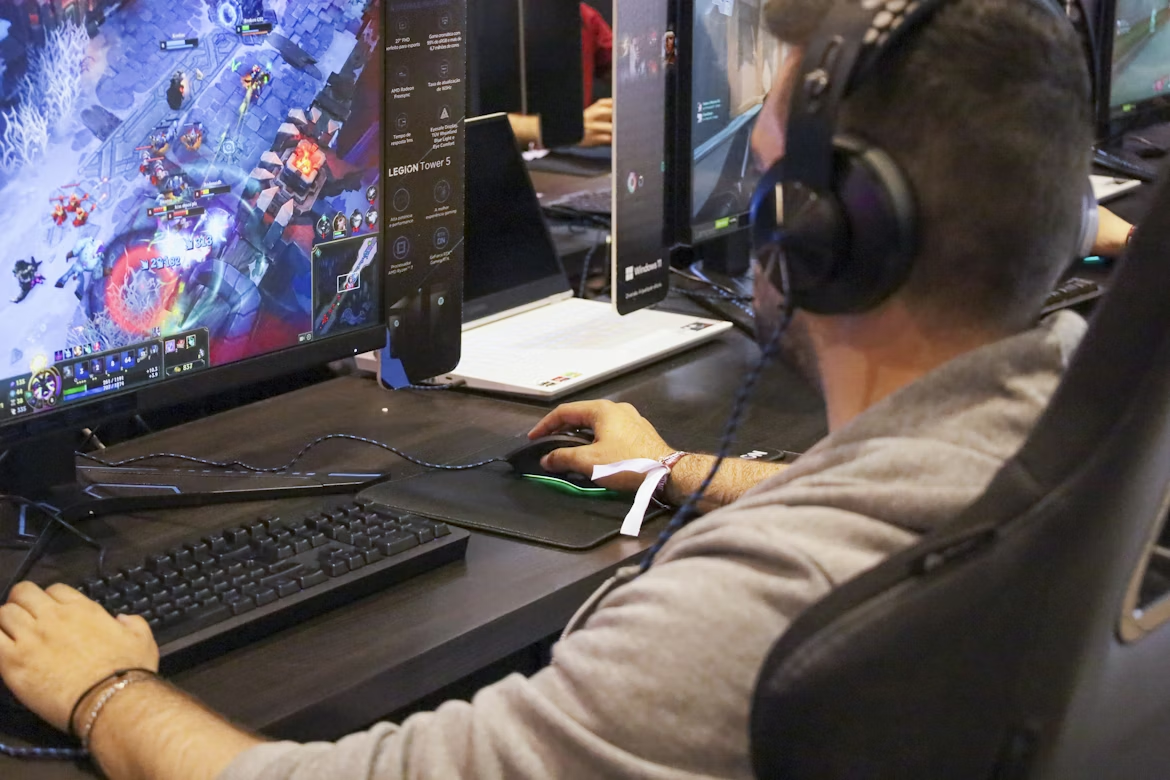In our celebrity-obsessed culture, the public’s passion for the private lives of public figures never seems to wane.
For decades, stars like Bronson Pinchot—beloved for his iconic role as Balki Bartokomous on “Perfect Strangers”—have found themselves the subject of persistent speculation about their personal lives and sexuality.
The internet age has only amplified this phenomenon, with search terms and rumors spreading faster than ever before.
Yet amid all this curiosity, we rarely stop to ask ourselves the more important question: Why does it matter? Why do we remain so invested in categorizing and defining celebrities’ identities?
Perhaps our obsession says more about our cultural anxieties than it does about the celebrities themselves.
As we continue to evolve toward a more inclusive society, maybe it’s time to reconsider the questions we’re asking—and why we’re asking them at all.
Who Is Bronson Pinchot?
Bronson Pinchot burst into American consciousness in the 1980s with his scene-stealing turn in “Risky Business”. He rose to stardom as the lovably eccentric Balki Bartokomous on “Perfect Strangers,” a role that earned him multiple Emmy nominations.
His theatrical performances and gift for accents established him as a versatile character actor with appearances in films like “Beverly Hills Cop” and “True Romance.”
Pinchot’s flamboyant characters and expressive acting style created a public persona distinct from his private reality.
The theatrical nature of roles like Serge in “Beverly Hills Cop” led many to make assumptions about the man behind the characters.
Yet this conflation of actor with role highlights our tendency to blur the lines between performance and personal identity—a common phenomenon in celebrity culture.
Where Did the “Bronson Pinchot Gay” Rumors Come From?

Like many actors with distinctive personas, Pinchot became subject to persistent speculation about his personal life.
The rumors emerged from a combination of factors: his portrayal of eccentric, sometimes flamboyant characters; the entertainment industry’s tendency to typecast; and the public’s habit of conflating performers with their roles.
Throughout the 1990s and beyond, these whispers followed Pinchot despite his relative privacy regarding his personal relationships.
Such speculation reflects our culture’s uncomfortable history with assumptions based on mannerisms or creative expression, rather than stated identity.
This phenomenon isn’t unique to Pinchot—many performers who don’t fit conventional masculinity stereotypes have faced similar scrutiny, revealing more about societal bias than the individuals themselves.
Hollywood Stereotypes and Flamboyant Roles
Pinchot’s portrayal of characters like the art gallery assistant Serge in “Beverly Hills Cop” and the eccentric Balki Bartokomous featured theatrical mannerisms and expressive delivery that played into certain stereotypes.
Hollywood has long equated such performances with specific sexual orientations, creating a simplistic formula where flamboyance equals identity.
This reductive thinking led audiences to make assumptions about Pinchot based merely on the characters he brought to life, demonstrating how acting choices can trigger unwarranted speculation about performers’ personal lives.
Media, Misinterpretations, and Fan Projections
Certain interviews where Pinchot discussed his artistic sensibilities or his close friendships were often misinterpreted through a gossip-hungry lens.
Comments about his appreciation for aesthetics or his theatrical training became fodder for speculation. Fan communities similarly projected their own narratives onto the actor, creating an echo chamber of rumors that gained momentum despite lacking substantiation.
This pattern reveals how media framing and audience projection can construct entirely fictional narratives about public figures, particularly in the absence of explicit statements.
What Has Bronson Pinchot Actually Said?

Throughout his career, Pinchot has maintained a notable degree of privacy regarding his personal life. In interviews, he generally steers conversations toward his work, acting technique, character development, and creative projects like home restoration.
When personal questions arise, Pinchot has typically redirected with humor or changed the subject, neither confirming nor denying rumors.
This careful guidence reflects the challenging position many celebrities face: balancing public curiosity with personal boundaries.
Some fans and media outlets have interpreted this privacy as meaningful, but such assumptions reveal more about our culture’s discomfort with ambiguity than about Pinchot himself.
In an era of oversharing, his choice to keep certain aspects of his life private stands as increasingly countercultural.
Quotes, Silence, and Strategic Privacy
In rare instances when interviewers have directly broached personal topics, Pinchot has employed the art of graceful deflection.
During a 2010 interview, when questioned about relationships, he stated, “I prefer to keep my personal life separate from my professional one.”
This neither-confirm-nor-deny approach has been consistent throughout his public appearances.
His autobiography likewise focuses on his career journey and artistic development rather than romantic relationships, maintaining the boundary between his public persona and private reality.
Why Celebs Might Choose to Stay Quiet
Celebrities often remain guarded about personal matters for practical reasons. Hollywood’s history of typecasting and discrimination has taught performers that certain personal revelations can limit career opportunities.
Beyond professional concerns, many simply desire the same privacy that non-famous people take for granted. For actors whose performances already invite intense scrutiny, maintaining some personal sanctuary becomes essential for mental well-being.
The pressure of having every statement analyzed and potentially weaponized creates a no-win situation that makes silence a rational choice.
The Bigger Issue: Why Society Can’t Stop Labeling?

Our cultural obsession with categorizing celebrities reveals deeper societal tensions about identity and belonging. The impulse to label others stems from human cognitive need for order—we sort people into mental boxes to simplify our understanding of them.
With public figures, this tendency intensifies as fans seek connection through perceived knowledge. The persistent speculation about Pinchot and countless other celebrities demonstrates how uncomfortable many remain with ambiguity or fluidity.
This discomfort often manifests as an insistence on definitive answers where none may be forthcoming or necessary.
Rather than accepting the complexity of human identity, our media ecosystem rewards certainty, even when that certainty is built on assumptions rather than facts.
Society’s Obsession with Sexuality
Our fixation on celebrities’ sexual orientation often reflects larger cultural anxieties. When we demand labels for others, we’re frequently seeking validation for our own worldviews or attempting to resolve societal tensions through individual examples.
This need intensifies with performers whose work challenges gender norms or conventional expressions of masculinity or femininity
. The obsession speaks to our discomfort with spaces between categories and our cultural inheritance of viewing sexuality through binary frameworks, despite growing recognition that human identity exists on multiple spectrums.
The Right to Define — Or Not Define
Every individual, famous or not, deserves the fundamental dignity of self-definition. Public curiosity doesn’t override the personal right to disclose—or not disclose—aspects of identity on one’s own terms and timeline.
The pressure celebrities face to serve as representatives or role models can become an unfair burden that denies them the privacy afforded to others.
This dynamic raises important ethical questions about the consumption of celebrity culture: Where does legitimate public interest end and invasion of privacy begin?
Perhaps respect means accepting that some questions don’t require answers accessible to strangers.
Then vs Now: Being Gay in 1985 vs 2025
The landscape surrounding sexuality in entertainment has undergone a dramatic transformation since Pinchot’s rise to fame. In the 1980s, when “Perfect Strangers” dominated primetime, openly LGBTQ+ performers faced formidable barriers to mainstream success.
The AIDS crisis had intensified homophobia, and studios explicitly avoided casting actors known or rumored to be gay in leading roles.
Today’s entertainment industry presents a markedly different environment, with numerous high-profile actors living authentically without career destruction.
Yet progress remains uneven across genres, markets, and demographics. This evolution contextualizes why speculation about actors from earlier eras should be viewed through a historical lens that acknowledges the professional risks they faced from such rumors.
Hollywood’s Fear Factory Back Then
In 1985, rumors alone could end promising careers. Studios maintained unofficial “lavender lists” of suspected gay actors who were systematically denied leading roles.
Agents routinely advised LGBTQ+ clients to create false heterosexual personas, complete with arranged relationships for public consumption.
The pressure was particularly intense for male actors playing romantic leads, as studios believed audiences wouldn’t accept them in these roles if their authentic identity became known.
This created an environment where privacy wasn’t merely a preference but a professional survival.
What We Should Really Learn from Bronson Pinchot?

The persistent speculation surrounding Pinchot offers a powerful lesson in respecting boundaries and recognizing harmful cultural patterns.
When we fixate on categorizing others, particularly without their consent, we reduce complex individuals to single dimensions of identity.
The obsession with Pinchot’s personal life has often overshadowed discussion of his considerable artistic contributions—his comedic timing, his facility with accents, his dramatic range.
This tendency reflects a broader cultural habit of valuing perceived knowledge about celebrities over genuine appreciation of their work.
Rather than continuing cycles of speculation, perhaps the most meaningful response is to redirect our attention to what artists choose to share with us—their performances—while respecting the privacy they maintain around areas of life they consider personal.
Stop Assuming, Start Respecting
Speculation about someone’s sexuality, regardless of how they present or perform, fundamentally violates their autonomy.
These assumptions reinforce harmful stereotypes that certain mannerisms or interests “signal” sexual orientation, perpetuating reductive thinking.
The damage extends beyond individual privacy violations—it creates cultural expectations that limit creative expression for all performers who fear being similarly labeled.
Respecting boundaries means accepting that some questions aren’t ours to answer and recognizing that our curiosity doesn’t override someone else’s right to define themselves on their own terms.
Celebrate Talent, Not Labels
Pinchot’s legacy should be his remarkable ability to create memorable characters, not endless debates about his personal life.
His performances in “Perfect Strangers,” “Beverly Hills Cop,” and numerous other productions demonstrate extraordinary versatility that deserves appreciation on its own merits.
When we fixate on sexuality rather than skill, we diminish artists to one-dimensional figures rather than complex creators.
True appreciation means engaging with what people choose to share with the world—their artistic expressions, public statements, and professional choices—without demanding access to aspects of their identity they consider private.
Conclusion: Maybe It’s Time to Stop Asking
Perhaps the most profound realization in our examination of celebrity speculation is that the answers we seek often don’t matter at all.
When we fixate on Bronson Pinchot’s—or any celebrity’s—personal life, we miss the opportunity to appreciate the gifts they’ve shared through their art.
The question isn’t whether our assumptions are correct, but why we feel entitled to make them in the first place.
In a world increasingly divided by labels, maybe the radical act is refusing to categorize others against their will.
The measure of a person—famous or not—lies in their character, their contributions, and how they treat others, not in who they love or how they identify.
Instead of demanding answers to questions that aren’t ours to ask, perhaps we might channel that energy toward creating a culture where such questions become irrelevant—where all can live and create freely, without explanation or apology.





